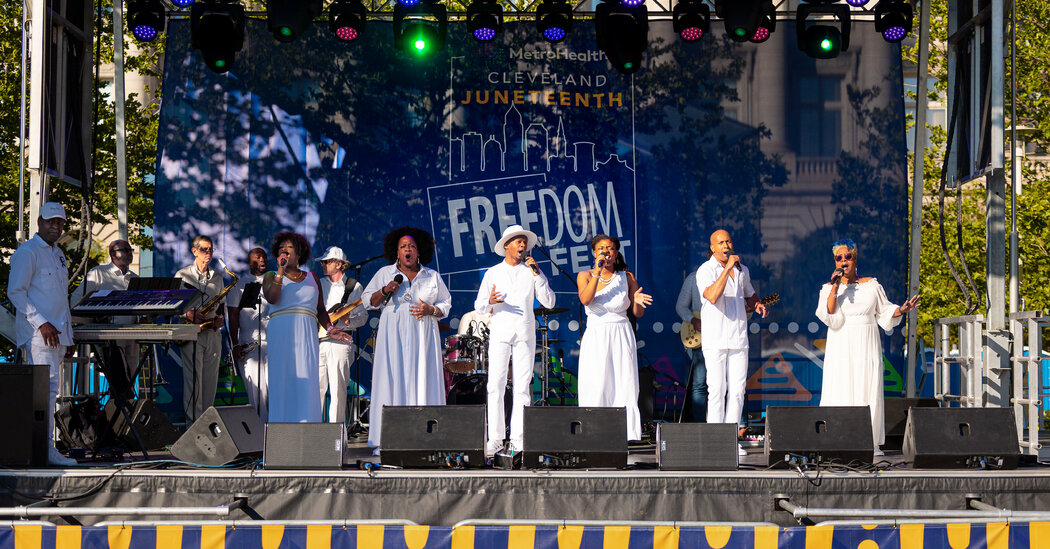Although the celebration of Juneteenth, which commemorates June 19, 1865, as the end of slavery, has gained popularity in recent years, it’s long been a deeply personal holiday acknowledged by many African American families and communities. My family was one of them. Our house was decorated with portraits of my father’s hero, the abolitionist Frederick Douglass, who scandalized the Rochester Ladies’ Anti-Slavery Society when he delivered the famous speech “What to the Slave Is the Fourth of July?” in 1852. For the ancestors of Black Americans, freedom did not occur on July 4, 1776, but nearly 90 years later.
After Black Americans’ decades-long struggle to make Juneteenth a federal holiday, President Biden signed the Juneteenth National Independence Day Act in 2021. Since then, celebrations have grown across the country in the form of concerts, parades, educational programming and festivals. Below are five places to visit this long Juneteenth weekend, with activities scheduled from June 16 to 19.
Galveston, Texas
Known as the birthplace of Juneteenth, Galveston was where Gen. Gordon Granger of the Union Army ordered the freedom of more than 250,000 enslaved Black people in the state of Texas on June 19, 1865. It was the last stop on a long march for Union troops across the Confederate South, freeing the enslaved as they went. The first documented Juneteenth celebration took place in Galveston the following year, a tradition that has continued there for 157 years.
“Juneteenth was recognized as a state holiday in 1980, but our families have been celebrating Juneteenth since 1866,” said Sam Collins, a lifelong Galveston resident as well as the historian and a co-chair of the Juneteenth Legacy Project, a nonprofit organization whose goal is to recontextualize Juneteenth as a pivotal moment in U.S. history.
“I think what is so often lost is the story of the ancestors and elders that kept this history going by acknowledging the day even when the larger society wouldn’t acknowledge it. Juneteenth didn’t become important because it became a national holiday, and it didn’t become important in 2020 after the unfortunate murder of George Floyd. It has always been important to the former enslaved and their descendants.”
At various times on Juneteenth weekend, you can stand in the spot where General Granger read his proclamation on a guided Juneteenth Freedom Trail Tour, led by Juneteenth and Beyond Black History Guided Tours ($25), and continue…
Click Here to Read the Full Original Article at NYT > Travel…
